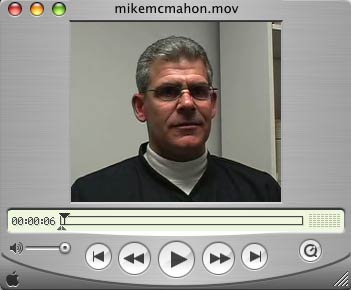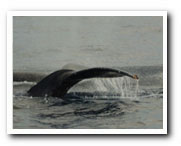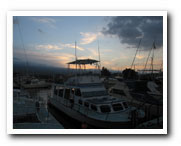Setting a great example for all other public radio stations, Santa Monica College’s KCRW will launch Podcasts of their programs (mp3 files easily passed around, linked to and played back by the millions of mp3/iPod type players in use today). KCRW is an excellent source for interesting music and programs, via mp3 internet streams.
I’ve seen no change in Wisconsin Public Radio’s audio content. They would be much better off, as would the listeners and contributors if they provided all local content in easy to use mp3 files (they currently have real audio streams which require the listener to be connected to the internet while listening).
Rebecca Ryan is speaking Tuesday night (3/1) at the Overture Center on whether Madison has what it takes to play in the New Economy (Two bad signs: no public radio podcasts and no wi-fi at the airport, actually, there’s a 3rd, we continue to let Kenton Peters inflict his metal buildings on us….). While these two issues require attention, the larger problem we have is a low business risk culture. Sort of strange, given that the Wisconsin economy was grown by many, many entrepreneurs who built agricultural and manufacturing businesses 50, 70 and 100 years ago.
What are podcasts? Click here to find out.
Category: Entrepreneurs
Security – By HST
Hunter S. Thompson on Security (1955) – via Bruce Schneier. Well worth reading.
Horace & Selling Out
Dave published an essay today, let’s call it an essay “mini” in keeping with the times, on product development & selling out. Well worth reading.
Dave’s words remind me of past experiences in the large, corporate world. Product A is created or acquired. Over time, the things that made Product A useful, interesting and marketable are slowly taken away (juice content (Pepsi Slice), flavors, quantity) while prices go up. We might refer to this as an MBA approach to product development, though that is too harsh. Perhaps it is more of a corporate vs entrepreneur approach.
In any event, it happens all too often.
Madison Small Business Series: Mike McMahon & Pinnacle Health & Fitness
 |
CEO, Pinnacle Health & Fitness On starting and growing a business |
I visited with Mike recently and talked about:
- The experience necessary to successfully start a business, and avoid losing your relatives money.
- Hiring the right people
- Customer Service
- Competition
- Career Advice
Check out this 7 minute mp3 audio file or a 7 minute Quicktime Video.
Tool for Thought
Steven Berlin Johnson discusses the software he uses to organize his research, Devonthink.
This week’s edition of the Times Book Review features an essay that I wrote about the research system I’ve used for the past few years: a tool for exploring the couple thousand notes and quotations that I’ve assembled over the past decade — along with the text of finished essays and books. I suspect there will be a number of you curious about the technical details, so I’ve put together a little overview here, along with some specific observations. For starters, though, go read the essay and then come back once you’ve got an overview.
Does Not Compute: Technology Implementations….
Nicholas G. Carr continues his analysis of failed software projects. Carr wonders if we should scale back our technology expectations:
Equally important, they stopped trying to be creative. Rather than try to customize their software, they began looking for cheaper, off-the-shelf programs that would get the job done with a minimum of fuss. When necessary, they changed their own procedures to fit the available software. Old, generic technology may not be glamorous, but it has an important advantage: it works.
It may well turn out that the F.B.I.’s biggest problem was its desire to be innovative – to build a new wheel rather than use an old one within easy reach. When it comes to developing software today, innovation should be a last resort, not a first instinct.
Carr is mistaken in telling technology drivers to slow down with respect to innovation. The real question is whether or not top management has made the commitment to align their business processes with the technology (and provide leadership when tough decisions must be made). Carr, of course does not mention the many successful technology innovations we take for granted today, such as
- Cell Phones
- The Internet
- Fast payment processing (credit cards)
- Travel reservation systems
We take these innovations for granted, but each one required risk, leadership, mistakes and a willingness to make it work. There are no shortcuts. More on Nicholas G. Carr.
AT&T’s CTO recognizes what is required to succeed:
“The biggest challenge is not the technology,” he said, “but being able to change the culture.”
Weak on Entrepreneurial Energy
 |
 |
 |
Starting a Business is Not a Top Down Process
Rick Romell’s summary of CFED’s Development Report Cards for the States does not shed a whole lot of new thinking on Wisconsin’s entrepreneurial dilemna:
- Wisconsin placed 47th in the number of new companies formed per 1,000 workers in the state
- Venture Capital is a problem here
- Wisconsin’s Brain Drain – new grads often leave the Badger State.
Yet, Wisconsin continues to try government driven, top down programs, such as the Wisconsin Angel Network, among others.
Candinas Chocolatier is the type of business we should seek to emulate. Markus started the company in 1994, after completing an apprenticeship in Switzerland. Today, over 10 years later, he is still in business and clearly enjoys what he’s doing. The attention to detail illustrated in the product photos above demonstrates the devotion required to succeed. Let’s call it passion. Another interesting local firm, Planet Propaganda created his packaging.
Candinas’ products are certainly not inexpensive, nor are they run of the mill. Rather, Markus has taken a quality position in the market and continued to improve his chocolates. This is a very long term approach to business. I need say no more on this subject as Consumer Reports discovered:
?The best chocolates came from lesser-known makers,? the magazine pronounced in its February issue. ?Lesser-known? as in Candinas Chocolates, of Verona, Wisconsin (www.candinas.com). Candinas was one of only three chocolate makers nationwide to achieve the rating of ?excellent,? ranking behind Martine?s Chocolates and La Maison du Chocolat in that category.
The winning assortment was the Candinas 36-piece box (price: $41). ?Ultra-smooth dark and milk chocolates with especially good hazelnut, caramel, and liqueur-flavored centers,? praises the magazine, accentuating the ?fresh cream and butter notes.?
Fine chocolates from Wisconsin may boggle the mind, but consider: chocolatier Markus Candinas, 32, has Swiss parents and trained as a confectioner in their homeland.
Great chocolate makes perfect sense – we have fantastic dairy products. Perhaps we’d be better off further leveraging our dairy business (designer milks and more cheese varieties?).
Entrepreneurs are born, not trained. We simply, as Romell’s article notes, need to find more people willing to give it a try.
A useful book, sort of related is Mintzburg’s Managers Not MBA’s.
Burt Rutan Inteview
SpaceShipOne designer Burt Rutan is interviewed by George Nemiroff:
Question: Considering your motivation to innovate and design futuristic air/spacecraft, are you attracted to the Centennial Prizes offered by NASA to develop new craft designs?
Answer: Oh no, I don?t believe NASA can properly put out a (developmental) prize like the Orteg Prize or the Kramer Prize, or either the X Prize. NASA has a real habit of trying to help sub-contractors and contractors by monitoring risks that NASA wouldn?t take themselves. What NASA needs to do is to put out a very difficult goal to achieve and then not monitor it at all and let those that go after it take their own risks. I don?t see NASA doing that. Possibly they will. Maybe they will put someone in charge that knows the benefits of running a prize properly. I haven?t seen that yet.
This is funny
Speaking of the passion in running a small business… This is great!
The Art of Running A Small Business: Big Island Eco-Tours
 |
 |
This work marks the beginning of a periodic series this site will publish on interesting small business owners. Small business, as many know, are the engines behind real job growth. Put simply, we need more people to get creative, chase their dreams and start a business (triple this need in the rust belt where traditional manufacturing jobs are going away).
Today’s 3 degree (did it get that warm?) Madison weather means it’s time to visit Kona, Hawaii and take a look at Dan McSweeney’s: Captain Dan’s Eco-Tours. Or, perhaps more appropriately, the art and study of whale watching. Dan has taken his passion – marine biology – and made a life’s work out of it along with a real business. He also brings a certain art, or style to the whale watch process.
Read on…..